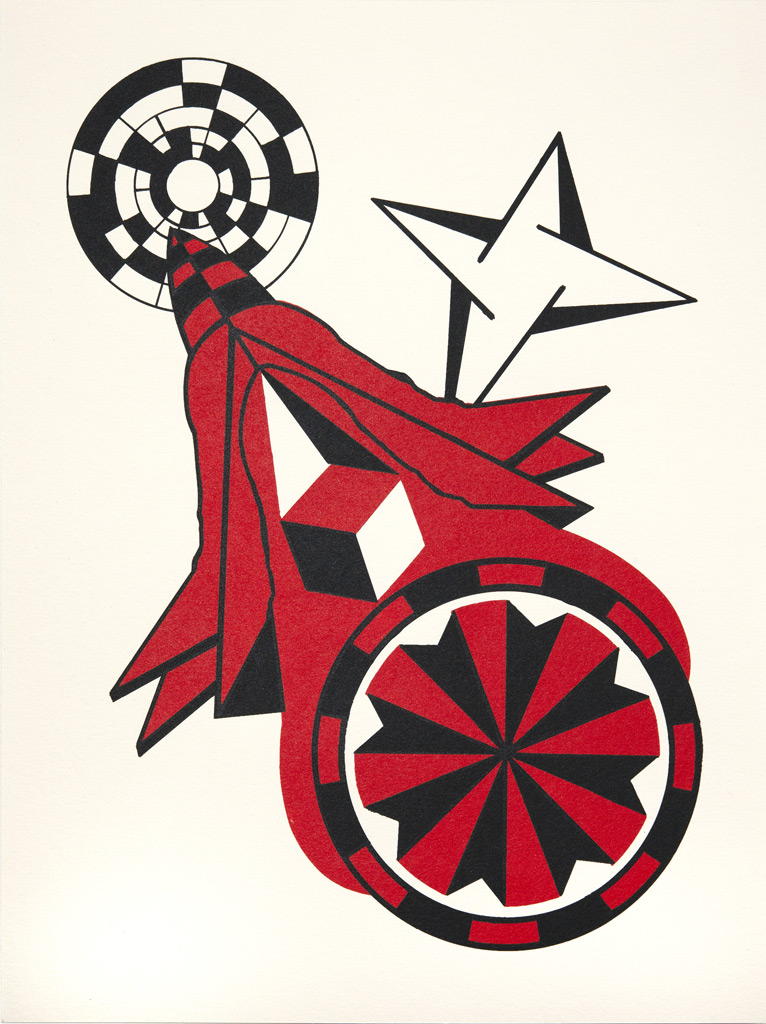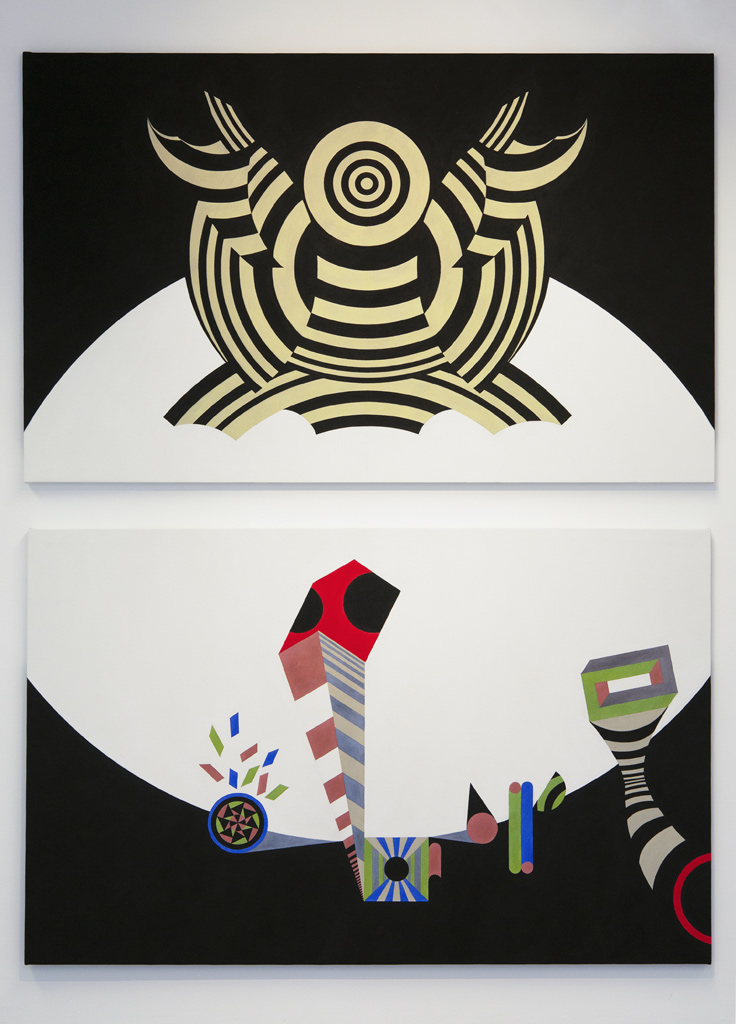The Human Spaceship
Helen Schell
4-27 October 2018
Helen Schell, Big Red Rocket, 2018, acrylic on canvas, 400x273cm. Photo: Judith Fieldhouse
In ‘The Human Spaceship’ Helen Schell expresses what it is like to live in a space-faring society at a time when we are experiencing the most astounding change in ‘being-human’ through astronomy and space exploration.
Schell has worked with leading scientists to present a series of large and dramatic artworks exploring features of human spaceflight and space technology, her work being inspired by space exploration and the science of the cosmos.
Helen Schell, ‘The Human Spaceship’, 2018, installation view. Photo: Judith Fieldhouse
Helen Schell, ‘The Human Spaceship’, 2018, installation view. Photo: Judith Fieldhouse
The exhibition includes a ‘Rocket Room’ and ‘Observatory’, the latter of which looks at visual perception in altered gravity environments. The large paintings Big Red Rocket (2018), Spaceship 2 (2015), Upon the Moon (2018) and Observatory (2016) employ optical illusions and geometric distortions to express the phenomena of space, human spaceflight, altered gravity and rocket technology. The Moon Rocket Dress (2018) is a ball-gown playing homage to the Apollo Moon iconography and references the upcoming 50th Anniversary of the first Moon landing in 1969.
Helen Schell, ‘The Human Spaceship’, 2018, installation view. Photo: Judith Fieldhouse
Helen Schell, ‘The Human Spaceship’, 2018, installation view. Photo: Judith Fieldhouse
Helen Schell was born in the USA and lives in Sunderland, UK. Previous exhibitions include ‘SOLAR’, Words by the Water Festival, Keswick (2017), ‘Yellow Giant’, Vane, Newcastle upon Tyne (2015), ‘Moon Rocket’, ESERO-UK Space Conference, York University, York, ‘Moon-shot: First Woman on the Moon’, Vane, Newcastle upon Tyne (2013), ‘The 11th Dimension’, Durham Cathedral, Durham and ‘The Rocket Project’, Aardman Animations, Bristol (2009). Schell is an ESERO-UK Space Ambassador for the education wing of the European Space Agency. In 2015 she received an award from the New York based Pollock Krasner Foundation for research and project development with the European Space Agency, NASA, and UK universities. She has had several international residencies, including Art City, Winnipeg, Canada, Corning Museum of Glass, USA, Banff Centre for Arts, Canada, as well as in Germany, The Netherlands, Belgium, Sweden and Cuba. In 2019, she will be presenting a series of Moon themed exhibitions and projects in the UK linked to the celebration of the upcoming 50th Anniversary of the first Moon landing.
To accompany ‘The Human Spaceship’, Incubate Experimental Printmaking have editioned a new screenprint by Helen Schell, Red Rocket (2018), 40.5x30.5cm, in an edition of 10. The print is available from the Vane Shop.
Spectrum Symposium: Tuesday 16 October 1-6pm
‘Spectrum’ is a half-day symposium bringing together scientists, artists, and students to examine the future of human space exploration and long-term space living. Scientists from Durham, Cambridge and Northumbria universities will envision and discuss, within the context of their specialist fields, what the future holds within our space-faring society. These fields include extreme environments, cosmology and astronomy, human spaceflight, space-age smart materials, Moon, Mars and Earth observation, light and solar spectrum, and optical technology. The symposium will include a discussion about plans for ‘2019 – Year of Space at Centre for Life and beyond’, in the north east of England.
The symposium will start with a tour of ‘The Human Spaceship’ led by Helen Schell followed by presentations by Dr Pete Edwards, Prof John Girkin, Prof Richard Massey (University of Durham), Prof Nick Caplan, Dr Helen Mason (University of Cambridge), Dr Matjaz Vidmar (Edinburgh University and the Royal Observatory, Edinburgh), and Dr Andy Lloyd (Centre for Life, Newcastle).
Presented as part of the United Nations World Space Week, the theme of which is ‘Space Unites the World’ in 2018, and runs 4-10 October.
Take a video tour of the exhibition
Read more about Helen Schell’s exhibitions at Vane.
Share this page








